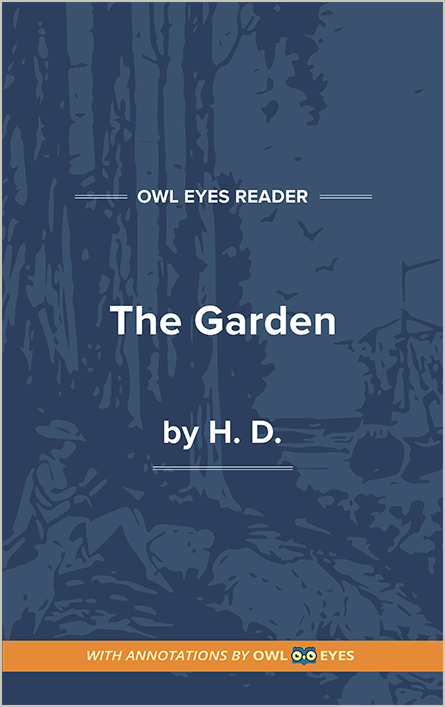- Annotated Full Text
- Literary Period: Realism
- Publication Date: 1916
- Flesch-Kincaid Level: 4
- Approx. Reading Time: 0 minutes
The Garden
In H.D.’s “The Garden,” a figure is rendered motionless by a stifling, oppressive heat. From her stillness, the speaker admires a rose as it grows through rock, pondering its strength in comparison to her own weakness. In the second stanza, the speaker pleads with the wind to cut through the heat and provide relief. The heat is described as capable of bending the shapes of fruit and thickening the air to a point which prevents fruit from falling. The poem itself can be read as an examination of the strength of the natural elements, against which humanity is ultimately rendered weak and powerless. However, the poem can be read as an examination of other forms of power. For instance, when H.D.’s poetry was rediscovered in the 1970s by the feminist and LGBTQ movements, “The Garden” was interpreted as a representation of the oppression of marginalized groups. However the overbearing heat is interpreted, the poem succeeds in evoking an atmosphere of oppression and powerlessness. “The Garden” is considered a classic example of Imagism, a poetic movement that emphasizes the use of sharp, clear imagery.
- Annotated Full Text
- Literary Period: Realism
- Publication Date: 1916
- Flesch-Kincaid Level: 4
- Approx. Reading Time: 0 minutes

